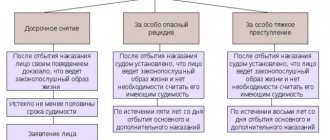Application Rules
Participation in the electronic auction (EA) of customers, suppliers, contractors, performers Art.
66 44-FZ requires registration in the Unified Information System (EIS), which is simultaneously automatically accompanied by accreditation on the ETP. The process of submitting applications for participation in electronic trading should be accompanied by compliance with the following rules:
- application documents must include 2 parts;
- It is not allowed to require participants in the auction to provide additional documents and information, except for the case in which design documentation is included in the procurement specification, which obliges procurement participants to agree to perform work according to the rules of documentation on EA;
- a person participating in the EA has the right to send only 1 application;
- the ETP operator must send the first application part to the customer during the working day that follows the deadline for submitting application documents;
- the auctioneer who submitted the application has the right to withdraw it no later than the deadline for submission, notifying the ETP operator about this;
- the latter must, before publishing the auction protocol on the ETP, ensure the confidentiality of information about the auctioneers who submitted application documents, as well as the data contained in their 1st and 2nd parts and in other attached documentation.
If this rule is violated, the operator of the electronic platform is subject to liability provided for by the legislation of the Russian Federation.
Application of Art. 69 44-FZ when considering the second parts of applications
We will tell you how the second parts of applications for an electronic auction are checked in accordance with Article 69 of Law 44-FZ, why the customer can reject an application and what the supplier should pay attention to when preparing it.
Article 69. Consideration of the second parts of applications
As you know, to participate in an electronic auction under Federal Law 44, a potential supplier must prepare an application, which consists of two parts. Part 1 of the application is considered at the very beginning, on its basis the customer makes a decision on the admission of the participant to the auction itself. The second part of applications is considered after the auction.
Unfortunately, many suppliers do not take the second part of applications for an electronic auction seriously, since there is an opinion that it is much more important to correctly compose part 1 and gain admission to the auction. Meanwhile, there are often cases when a hastily drawn up second part of an application costs the participant a contract.
The second parts are considered only after the auction, when the winner has already been determined, but this does not mean that the customer cannot reject an illiterate application, depriving the winner of the contract. All this is spelled out in the text of Law 44-FZ in Article 69 (“Procedure for considering the second parts of applications for participation in an electronic auction”).
Unlike part 1 of the application, the second part is not anonymous. The main task is to give the customer a complete picture of the supplier company and its activities. The list of documents and information that must be presented in the second part is determined by Article 66 of Law 44-FZ.
The second part of the application for an auction in electronic form must include:
— name of the supplier company, as well as all contact information: address, phone number, etc. The TIN number, information about the registration of the enterprise, information about the manager, founders and chief accountant are also indicated here;
— a list of documents that confirm that the supplier’s professional level meets the requirements stated by the customer. These could be certificates, licenses, etc.;
— certificates for certain groups of goods. If the tender involves the purchase of goods subject to mandatory certification, the supplier must attach copies of all documents confirming the presence of this certification for his product;
— decision of the founder of the supplier company to approve a major transaction (if such is provided for in the company’s constituent documents);
- other documents, if necessary, based on the specifics of a particular purchase.
Additional requirements for the second parts of applications
It is also worth noting that when purchasing complex, innovative and technological goods, services or works, additional requirements for participants come into force. All of them relate to such areas as restoration work with architectural monuments, complex technological construction work, recreation and health services for children, work with nuclear materials and others. All additional requirements are reflected in Article 31 of Law 44-FZ.
Important According to Article 69, the customer does not have the right to demand additional documents from the supplier unless this is provided for by special provisions of 44-FZ or other regulations.
Additional requirements include documents confirming:
— Availability of financial resources at the company;
— Ownership of real estate, equipment, machinery and transport;
— Experience in a similar field;
— Evidence of the purity of business reputation;
— Availability of the necessary specialists with appropriate qualifications at the enterprise.
Consideration of the second parts of electronic auction applications
The main task of the customer when considering the second parts of applications under 44-FZ is to check all the information provided for compliance with reality. The more clearly and in detail the auction participant describes all the necessary information, the greater the chance that his application will not be rejected at the very last moment.
Consideration of the second parts of applications begins after the completion of bidding in the electronic auction, that is, after the winner is determined. The mechanics of working on electronic trading platforms are such that the second part of the application is simply not sent to the customer until the auction is completed. This is necessary in order to ensure the anonymity of participants when submitting price proposals and to maintain healthy competition.
Based on the results of consideration of the second parts of applications, the winner may remain the winner, or may give his place to the participant who took second or even third place.
The period for consideration of the second parts of applications by the customer, according to 44-FZ, is no more than 3 working days from the date of posting the auction protocol on the electronic platform . The second part of the applications is reviewed by an auction commission specially created for this purpose. Based on the results of the review, the commission decides whether part 2 of the winning participant’s application meets all the requirements stated by law. If yes, then the contract procedure is initiated.
Refusal to conclude a contract. Rejection of the second part of the application
The customer has the right to reject the second part of the application if it does not meet all the requirements (clause 6 of Article 69 of Law 44-FZ). In this case, the participant will be denied the right to conclude a contract; this right goes to the private owner who takes second (or third) place.
Reasons why the second part of the application may be rejected:
— The participant did not provide all necessary documents in full. In this case, a lack of one certificate or license will be sufficient to lose the right to conclude a contract (clauses 1,3,5,6,7,8 of Article 62);
— The participant did not provide the documents required for accreditation on a specific electronic trading platform. Since the constituent documents of the participating company are most often sent to the customer by the platform itself (these documents are provided during accreditation), the lack of documents for registration automatically jeopardizes participation in the auction itself;
-The participant provided false information. If the customer finds at least one discrepancy in the participant’s documentation, this becomes a reason for refusing to conclude the contract;
— The participant does not comply with other requirements of the public procurement law 44-FZ. Legislation imposes special requirements on potential suppliers, including depending on the specific area of their activity. Failure to comply with these requirements (as well as additional requirements) becomes a reason for refusal of the contract.
After considering the second parts of the applications, the customer draws up and publishes a general protocol of the results of the electronic auction, in which the final winner is named. Within 5 working days after the publication of the protocol, the customer sends to the recognized winner a draft of the government contract that is planned to be concluded.
The participant has the right to disagree with the rejection of the application. If the participant has not received an explanation from the customer regarding the reason for the deviation, he may contact the customer for additional explanations. If, after these explanations, the participant is sure that the rejection is illegal, he must contact the Federal Antimonopoly Service as soon as possible. This must be done before the customer has time to conclude a contract with a new supplier.
In the event that all second parts of applications received for the auction are found to be non-compliant, then this electronic auction is automatically declared invalid.
Features and practice of considering the second parts of applications for participation in the auction
Some participants forget to provide certain information about the organization, including the TIN in the text of the second part of the application. If you encounter such a problem, this does not mean that your application will be rejected. The fact is that, in addition to parts 1 and 2 themselves, during the review of documents, the electronic platform itself sends the customer documents and information about the organization, which include, among other things, an extract from the Unified State Register of Legal Entities, which contains the TIN number.
This means that even if you forgot to indicate the TIN and other information in the application, the customer will still not be able to reject your candidacy. However, you should be careful and familiarize yourself with all relevant articles of law.
A controversial issue is the availability of a document confirming consent to a major transaction. In the case where the application does not contain either a document confirming consent or a document indicating that the transaction is not major, confusion arises. Some customers reject such applications for participation in the auction, others do not. However, the participant should be aware that the law does not formally require confirmation of such transactions. The absence of a document automatically means that the transaction is not major for the company. Controversial issues are resolved in court, usually in favor of the participant.
In addition to the main documents, customers should also remember to attach additional documents for a specific type of contract. This applies, first of all, to contracts for small businesses (SMBs) - the potential supplier is required to prove his affiliation with them. In addition, do not forget about documents proving that the supplier is not an offshore organization.
It is easy to avoid rejection of the second part of an application in an electronic auction under 44-FZ - you must carefully and in detail indicate all the necessary information about the organization and quality of the product (service). A well-written second part guarantees that you will 100% receive a contract after winning the auction.
Source: https://www.pro-goszakaz.ru/article/103015-primenenie-st69-44-fz?utm_source=lettermarket&utm_medium=letter&utm_campaign=lettermarket_demo_GZ_regular_15112017&ustp=F
Submission order
Article 66 of Federal Law No. 44 regulates the following conditions for filing applications for participation in the EA:
- the auctioneer has the right to submit application documents at any time convenient for him in the interval between the publication of the notice of the EA and the completion of their submission;
- the auction participant sends an application to the ETP operator in the form of 2 parts simultaneously;
- in the case when design documentation is included in the description of the procurement object, the participant sends an application letter in the form of 2 electronic documents simultaneously with the addition of his consent to perform the work according to the instructions of the auction documentation;
- electronic documents certifying the auctioneer’s compliance with the additional requirements set out in Parts 2 and 2.1 of Art. 31 44-FZ, not included by the participant directly in the second application part, are sent by the site operator to the customer through the use of ETP software and hardware together with the second part;
- no later than an hour after receiving the application, the operator is required to give it an identification number and state this fact in the form of an electronic document sent to the address of the auctioneer who submitted the application document.
Contents of the first part
In the first part of the application for participation in the EA in accordance with parts 3 and 4 of Art. 66 44-FZ are required to attend:
- approval by the auctioneer of the delivery of goods, performance of work, provision of services carried out through the use of the functionality of the ETP;
- when purchasing goods during the bidding process or in the case of purchasing work or services in which the goods are used, it is required to indicate the country of its production, as well as its main characteristics.
If necessary, additional drawings, drawings, sketches, photographs and other images of the product can be provided.
At the same time, the law stipulates that in no case can the first application part contain data about the organization, and the application itself cannot be executed on its letterhead.
Article 31.2. Mandatory nature of a decision in a case of an administrative offense
Ruling of the Supreme Court of the Russian Federation dated 02/06/2017 N 305-AD16-19597 in case N A40-13761/2016 Arguments of the complaint regarding the adoption of a judicial act on the rights and obligations of a person not involved in the case, namely the insurer - an insurance public joint-stock company "Ingosstrakh" are not taken into account, since the judicial acts adopted in the case did not affect his rights and obligations, and the appealed judicial acts do not contain any conclusions regarding this person. In addition, by virtue of Article 31.2 of the Code of Administrative Offenses of the Russian Federation, the obligation to execute a decision that has entered into legal force in a case of an administrative offense for which an administrative penalty in the form of a fine is imposed is assigned only to society. At the same time, the norms of the Arbitration Procedural Code of the Russian Federation do not contain an obligation to involve the insurer in the case as a third party who does not make independent claims regarding the subject of the dispute.
Resolution of the Supreme Court of the Russian Federation dated April 21, 2017 N 44-AD17-5
In accordance with Part 1 of Article 31.2 of the Code of Administrative Offenses of the Russian Federation, a resolution in a case of an administrative offense is mandatory for execution by all government bodies, local government bodies, officials, citizens and their associations, and legal entities. According to Part 2 of Article 31.2 of the said Code, a resolution in a case of an administrative offense is subject to execution in full from the moment it comes into force, with the exception of the case provided for in Part 1.3 of Article 32.2 of the said Code.
Ruling of the Supreme Court of the Russian Federation dated May 18, 2017 N 309-KG17-4040 in case N A76-12383/2016
In satisfying the stated requirements, the courts were guided by Articles 198, 201 of the Arbitration Procedural Code of the Russian Federation, Articles 7, 12 of the Federal Law of 02.10.2007 N 229-FZ “On Enforcement Proceedings”, Part 1 of Article 31.2 of the Code of Administrative Offenses and proceeded from the fact that the adoption of a resolution on imposing an administrative penalty for execution by the body responsible for opening and maintaining personal accounts of the institution is mandatory. According to the resolution on the imposition of an administrative penalty, the date of its entry into force is December 21, 2015; at the time of filing an application with the financial department (04/14/2015), the statute of limitations for execution of the resolution had not expired, therefore, the financial department was obliged to accept the said resolution for execution.
Ruling of the Supreme Court of the Russian Federation dated December 28, 2017 N 304-AD17-19517 in case N A27-23072/2016
The arguments of the complaint regarding the adoption of a judicial act on the rights and obligations of persons not involved in the case, namely consumer citizens and the open joint-stock company Kuzbassenergosbyt, are untenable, since the judicial acts adopted in the case did not affect their rights and obligations, also The appealed judicial acts do not contain any conclusions regarding these persons. In addition, by virtue of Article 31.2 of the Code of Administrative Offenses of the Russian Federation, the obligation to execute a decision that has entered into legal force in a case of an administrative offense for which an administrative penalty in the form of a fine is imposed is assigned only to society.
Resolution of the Supreme Court of the Russian Federation dated September 18, 2020 N 18-AD20-25
In accordance with Part 1 of Article 31.2 of the Code of Administrative Offenses of the Russian Federation, a resolution in a case of an administrative offense is mandatory for execution by all government bodies, local government bodies, officials, citizens and their associations, and legal entities. By virtue of Part 1 of Article 32.6 of the Code of Administrative Offenses of the Russian Federation, the execution of a decision on deprivation of the right to drive a vehicle of the corresponding type or other types of equipment is carried out by confiscating and storing during the period of deprivation of the specified special right, respectively, a driver’s license, a certificate for the right to operate ships (including including small ones) or a tractor driver’s (tractor driver’s) license, if the driver, navigator or tractor driver (tractor driver) is deprived of the right to drive all types of vehicles, vessels (including small ones) and other equipment.
Resolution of the Supreme Court of the Russian Federation dated 08/09/2018 N 32-AD18-5
In accordance with Part 1 of Article 31.2 of the Code of Administrative Offenses of the Russian Federation, a resolution in a case of an administrative offense is mandatory for execution by all government bodies, local government bodies, officials, citizens and their associations, and legal entities. According to Part 2 of Article 31.2 of the said Code, a resolution in a case of an administrative offense is subject to execution from the moment it enters into legal force.
Resolution of the Supreme Court of the Russian Federation dated September 28, 2018 N 33-AD18-5
Part 2 of Article 31.2 of the Code of Administrative Offenses of the Russian Federation establishes that a resolution in a case of an administrative offense is subject to execution in full from the moment it enters into force, except for the case provided for in Part 1.3 of Article 32.2 of this Code.
Determination of the Judicial Collegium for Civil Cases of the Supreme Court of the Russian Federation dated April 20, 2021 N 51-KG21-2-K8
According to Part 1 of Article 31.2 of the Code of the Russian Federation on Administrative Offenses, a resolution in a case of an administrative offense is mandatory for execution by all government bodies, local government bodies, officials, citizens and their associations, and legal entities. Within the meaning of these norms, a decision made based on the results of consideration of a case of an administrative offense to find a person not guilty of committing an administrative offense due to the absence of an administrative offense in his actions cannot be reviewed when the court resolves a dispute about compensation for losses and compensation for moral damage in a civil manner. legal proceedings.
Resolution of the Supreme Court of the Russian Federation dated May 14, 2021 N 127-AD21-1-K4
In accordance with Part 1 of Article 31.2 of the Code of Administrative Offenses of the Russian Federation, a resolution in a case of an administrative offense is mandatory for execution by all government bodies, local government bodies, officials, citizens and their associations, and legal entities. By virtue of part 2 of this article, a resolution in a case of an administrative offense is subject to execution in full from the moment it enters into legal force, with the exception of cases provided for in parts 1.3 and 1.3-1 of article 32.2 of the said code.
Resolution of the Supreme Court of the Russian Federation dated July 15, 2021 N 75-AD21-3-K3
In accordance with Part 1 of Article 31.2 of the Code of Administrative Offenses of the Russian Federation, a resolution in a case of an administrative offense is mandatory for execution by all government bodies, local government bodies, officials, citizens and their associations, and legal entities. The resolution in a case of an administrative offense is subject to execution in full from the moment it comes into force, with the exception of cases provided for in parts 1.3 and 1.3-1 of Article 32.2 of this Code (Part 2 of Article 31.2 of the Code of the Russian Federation on Administrative Offenses).
Resolution of the Supreme Court of the Russian Federation dated November 12, 2021 N 75-AD21-5-K3
In accordance with Part 2 of Article 31.2 of the Code of the Russian Federation on Administrative Offenses, a resolution in a case of an administrative offense is subject to execution from the moment it enters into legal force. According to paragraph 4 of part 1 of Article 31.7 of the Code of the Russian Federation on Administrative Offenses, the judge, body, official who issued the decision to impose an administrative penalty, terminate the execution of the decision if the statute of limitations for execution of the decision to impose an administrative penalty, established by Article 31.9 of the said Code, has expired.
Contents of the second part
According to Part 5 of Art. 66 44-FZ, the second application part is required to ensure the presence of data in the form of:
- name, location of the legal entity, postal address of the participant, full name, passport details, place of residence of the individual, telephone number, Taxpayer Identification Number or similar document for a foreign citizen that complies with the legislation of his country;
- documentary evidence that certifies the auctioneer’s compliance with the provisions of Art. 31 44-FZ, as well as the declaration of conformity provided through the use of ETP software and hardware;
- documentary evidence certifying the compliance of goods, work, services with the requirements of the legislation of the country;
- decisions on approval or completion of a major transaction, if such a requirement is contained in the regulatory legal acts of the Russian Federation or in the constituent documents of a legal entity and when for the auctioneer the concluded contract or security for the application looks like a major transaction;
- documentary confirmation of the auctioneer's right to receive benefits in accordance with Art. and 44-FZ;
- document according to which the auction subject falls within the provisions of Art. 14 44-FZ on national treatment;
- a declaration confirming the participant’s involvement in small businesses or socially oriented non-profit organizations when the customer establishes restrictions through software and hardware on the basis of Part 3 of Art. 30 44-FZ;
- documentary confirmation of the auctioneer's right to receive benefits under Art. 28 and 29 44-FZ, if the participant has made a claim for the acquisition of such preferences.
This data is verified by the customer.







